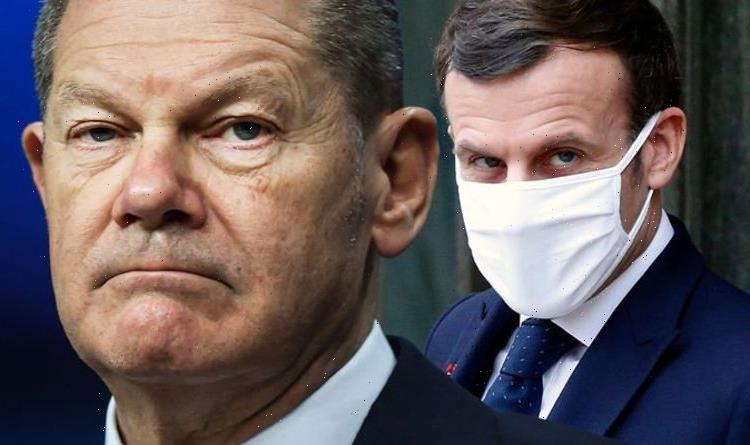Energy crisis: Ed Miliband grilled on 'nationalisation' of companies
We use your sign-up to provide content in ways you’ve consented to and to improve our understanding of you. This may include adverts from us and 3rd parties based on our understanding. You can unsubscribe at any time. More info
Across the continent, prices per megawatt-hour (MWh) now exceed €300 (£256) in most countries. With the exception of Poland and Scandinavia, all countries in Europe have broken the €300 MWh barrier with France and Switzerland nearly at €400 (£341.60).
Head of Analytics at research firm Enappsys Andre Bosschaart said he’d “never seen this kind of volatility and high prices”.
He also warned that France and Germany would break past €400 (£341.60) MWh very soon.
Head of Oil and Gas Research at Investec Nathan Piper described the prices as “phenomenally high”, adding that gas prices were now 10 times higher than the US in Europe.
These shocking prices come as the European commission delays the announcement of the highly anticipated green taxonomy list, partly due to bickering between France and Germany.


The EU taxonomy for sustainable activities is a system of classification that is established to determine which investments are environmentally sustainable.
This system was created in the wake of the European Green Deal in July 2020 and was made to help prevent “greenwashing” among different investments.
One of the reasons for this delay is the intense debate on gas and nuclear energy led by EU’s biggest countries, France and Germany.
For a while, the decision on including nuclear to this list has been a contentious one, with a number of European countries vehemently opposing the classification of nuclear as “green”.

France is leading a group of twelve countries that support the inclusion of nuclear energy as a part of a green taxonomy.
On the other side, five EU countries staunchly oppose these possible decisions.
Austria even went as far as threatening to take the Commission to the EU Court of Justice if they went ahead with the decision.
Meanwhile, Germany, which is heavily reliant on imported gas, particularly from Russia, has been pushing for gas to be considered a green investment as it is often a transition energy source between coal and other renewable energy sources.
DON’T MISS:
Archaeologists stunned at shipwreck ‘frozen in time'[SPOTLIGHT]
Truss in furious Brexit showdown as EU threaten £80bn betrayal [INSIGHT]
David Attenborough stunned by archaeological goldmine in UK [REVEAL]


This debate over “transitional energy” sources is the reason for the delay in the green taxonomy list, which could boost investment in renewable energy technologies.
According to POLITICO, some believe pandering to France and Germany’s domestic energy needs will “make a mockery” of the Commission’s aims to be a global leader on climate change.
In an EU leader’s summit in Brussels last month, leaders prepared to include nuclear in this list.
However, even if they are included in the taxonomy, the Commission is reportedly planning to put some restrictions and rules around the categorization of nuclear and gas.
These restrictions could include providing an expiry date for inefficient gas power stations or limiting the classification to state-of-the-art “cleaner” nuclear reactors.
Source: Read Full Article
